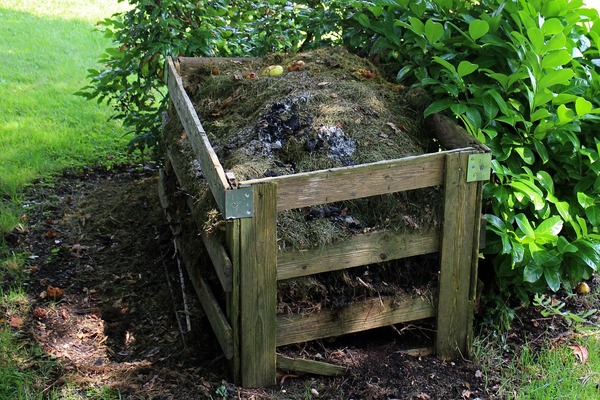Kitchen Compost Making Guide:
Today, let us talk kitchen compost making process.
Homemade nutrients for Kitchen Gardening:
Many of us are eager to eat fresh and organic vegetables that are grown at our own home. However, it is easy to set up the kitchen garden, it may be difficult to maintain it as many of us are unaware of nutrients and minerals that are essential for kitchen garden plants. Like humans, plants also require minerals and nutrients in specific quantities at regular intervals of time. It is easy to prepare homemade nutrients and minerals from kitchen wastes for plants at home with no minimum investment of money. Homemade plant nutrients and minerals are known as Kitchen compost which is the Kitchen waste directly into the garden. It is however easy to prepare Kitchen compost. It can be prepared using the daily kitchen waste at our home. In this post, we will let you know the steps to prepare Kitchen compost and How to apply and when to apply the Kitchen compost to the Kitchen garden plants.
Step by step Procedure to make Kitchen compost:
- Dump dry leaves into a 20-liter bucket up to half an inch. The size may vary depending on the availability of the container. More the size, more the duration required to prepare the Organic Kitchen Compost.
- Make a short hole on 4 sides of the bucket.
- Add coco pit that is available at the nearest coconut shop up to quarter the bucket.
- Then, add dry leaves or dry waste which are left out in the kitchen.
- Dump the Kitchen waste into the bucket completely. If possible, add in a 1:1 ratio of veg and nonveg wastes. However, you can also add dry waste.
- Finally, add waste decomposer or organic kitchen waste of the previous compost.
- Within a period of 45 to 50 days, the Organic kitchen compost gets ready. Turn upside down the compost in the bucket twice or thrice in weekly intervals.
- Cover the bucket with a thin layer of Coconut pit.
- We can get to know the kitchen compost is ready when we get the black sweet and foul smell.

Large scale Organic kitchen compost preparation:
It can be prepared in any private or government institutions or colleges. The wastes from the kitchen and daily foods are collected and dumped into Compost bin or compost pit prepared at the backyard of the institutions. It may be prepared in drums or dug pits. We can also add the dry leaves and stubbles to those pits. This compost is useful for application to the landscape plants in their own organizations. Such type of organic composting is nowadays followed in many institutions and organizations in urban areas.

Application of Organic Kitchen Compost at home
We can apply organic kitchen waste to various types of plants that are grown at our home. The may include Terrace gardens, Balcony gardens, Backyard gardens. However, we can also sell those Organic kitchen Compost to various other domestic kitchen gardeners only when we produce the Kitchen compost in bulk quantities.
Read: How To Grow Mosquito Repellent Plants.
How to apply Organic Kitchen Compos to the Terrace or Balcony garden
Organic compost contains almost all the minerals and nutrients that are required for the plants grown at home. The kitchen compost may contain major nutrients like N, P and K. It also contains minor nutrients like P, Bo, Mg, Ms, S, Ca and others.
Nitrogen in Kitchen Compost
Nitrogen is the major important nutrient that is required for the healthy growth of the vegetable gardens. Nitrogen is the element that is required in large quantities for the Vegetable garden plants. N is responsible for the growth and development of the Kitchen garden plants. In addition, the formation of new leaves and shoots also depends on the availability of N. Depending on the quantity of N required for the Kitchen garden plants, apply the prepared Kitchen compost as side dressing after germination of plants. Never go for the huge dosage of the Nitrogen to the plants. Nitrogen is present in kitchen wastes fruits and vegetable peels, Coconut husk, paddy grains, and fried items.
Phosphorous (P) and Potassium (K) in Kitchen compost
Next to N, P and K are the major nutrients that are required in large quantities to the Vegetable garden plants. P and K are the nutrients that are necessary for the functioning of the cells. P helps in avoiding major loss of water from the plants. Potassium or K helps in making the plants resistant to various invasive pests and diseases. We have to apply the p and k to the kitchen garden plants in order to avoid wilting of the pants. The deficiency may lead to the weakening of the plants and may also lead to the death of the plants. P and K also help in flowers and fruit or vegetable setting in the Kitchen garden plants. However, never ever apply these nutrients P and K in huge quantities that ultimately leads to the death of the Kitchen garden plants.
N, P, and K are rich sources in Kitchen wastes like pulses and cereal wastes.
Ca, Mg and S
These micronutrients are also present in the Kitchen compost. However, they are available in fewer quantities as compared to the major nutrients like N, P and K. Calcium is necessary for cell division. Magnesium helps in the development of pigments like chlorophyll that assists in photosynthesis of the plants. Sulphur helps in the development of strong and disease resistant roots of the plants.
Other Micronutrients
They may include nutrients like Manganese, Iron, Copper, Zinc, Boron and other nutrients. They are required in a minute or fewer quantities than any other nutrients. The Kitchen, however, contains all these micronutrients as we prepare them for the Kitchen waste.
Precautions to be taken in preparing Kitchen Compost
- Stir or turn up the compost at regular intervals.
- Make sure to add Coco pit at the base and top of the Kitchen compost bin.
- Never add plastic covers or plastic containers to the Kitchen compost.
- Also, ensure not to add any electronic waste to the Kitchen compost.
Conclusion:
These are the information on preparing Organic Kitchen compost at home. The kitchen compost is almost useful in every household who goes for terrace gardening or kitchen gardening or vertical gardening or any other urban gardening procedures.
That’s all for kitchen compost making, hope you have happy kitchen gardening!.
Read: How to Grow Organic Turmeric.